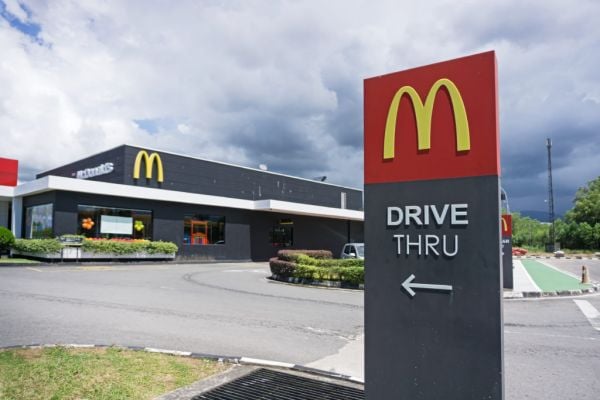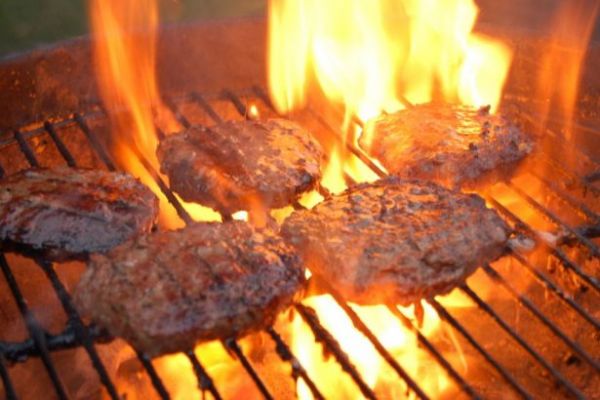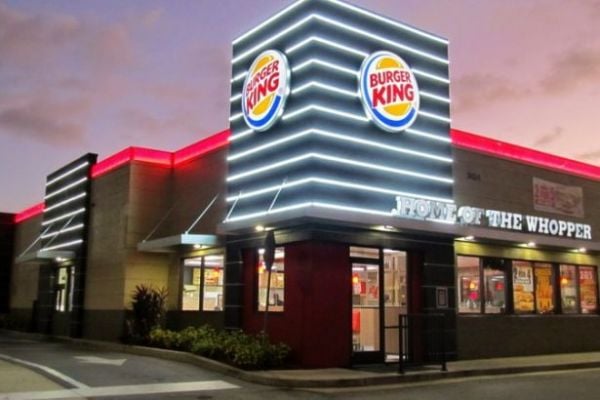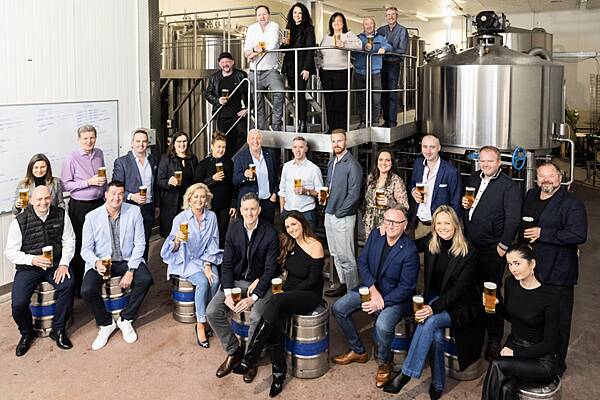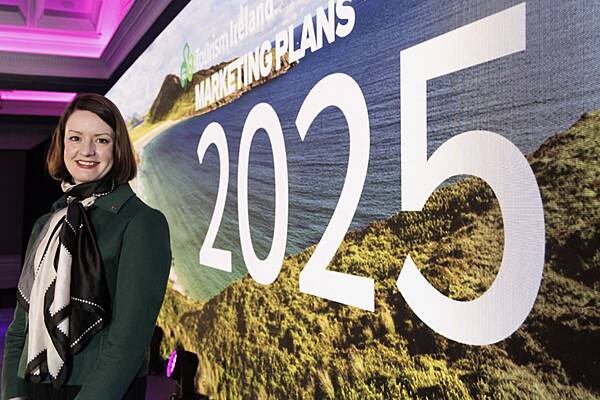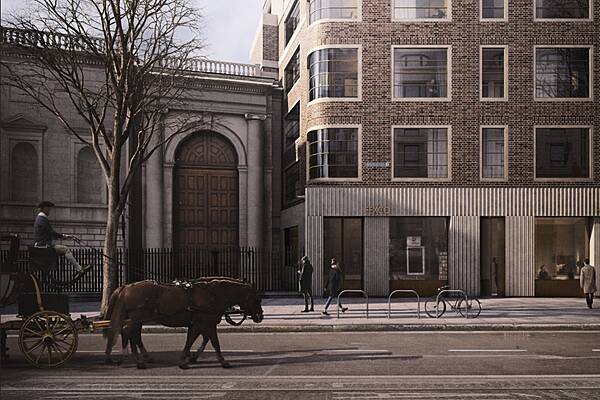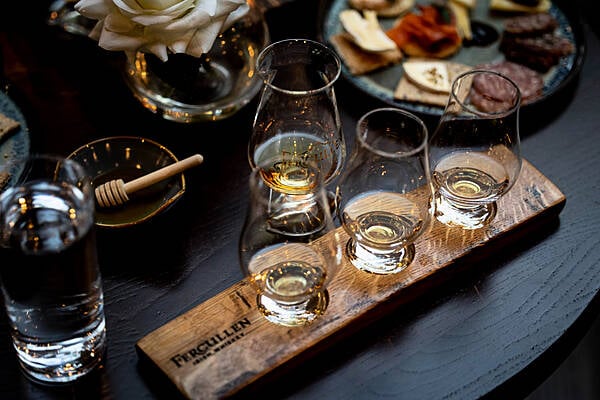Derry Clarke speaks to Noel Newell, executive chef at the Lyrath Hotel, about accommodation in Jersey, difficult staff and busy bars.
Derry: Noel, how did you get into cheffing exactly?
Noel: I’m from Sligo originally. I started pot-washing in an Italian pizzeria in Sligo Town, Bistro Bianconi. Paul Brooks was the chef there at the time and he was brilliant. He took me into the kitchen and explained everything.
Derry: And you knew all along that you would be a chef?Noel: No no, originally I wanted to do drama – then I had to tell my dad that instead of my leaving cert I wanted to go to Killybegs. The regime was three hours of supervised study at night and bed at 11pm. At the time I wondered what it had to do with cheffing but once I got into a busy kitchen, I realised how important a training it was. Derry: Most chefs that I meet that have come from Killybegs are good ones.Noel: Yeah, I was there for two years, I did a placement at Castlecort Hotel and Newmore. Castlecort in Westport is amazing because it still has the same staff, same chefs as when I was there 18 years ago – same headchef, breakfast chef, chef de partie. Amazing. After that I went to Galway – I think everyone from Killybegs did that afterwards. Then I did two years in Jersey, in a seafood place.
Derry: Jersey, there’s a great food culture there, and plenty of money…Noel: That’s the key. And Jersey have huge demand for chefs so accommodation, which is usually hard to find, is easy to get. I arrived with £30 on me and had work within a day. I worked in the Old Courthouse, which was seasonal. Then I moved home and went to Sligo for a year – Bar and Restaurant was new and I was there for a year, that was with Jay Bourke. Then I headed off to Chicago for a few months to help change around a menu in an Irish place there.
Derry: Irish bars in the States do pseudo-Irish food. Burgers with whiskey sauce and crazy things like that.Noel: Yea, it’s strange. It was good fun over there but I didn’t speak Spanish and if you work in a kitchen over there, you really need to speak Spanish. That didn’t appeal to me so I came back to Sligo and opened my own place. We worked hard but we weren’t making money. We were turning away more people then we could seat, but we just didn’t make the money.
Derry: It’s very frustrating when you’re quiet during the week and turning people away on Saturdays.Noel: Very!?And the economics become ever-more apparent. The week before St Patrick’s Day, our phones were down – the majority of our guests booked over the phone. That took us months to recover from. Then my chef went to work for the Radisson Group so we closed up shop and I went to work for the Radisson in Letterkenny. Then one of the chefs was opening up a Radisson in Stanstead – a 500-room hotel. I was brought over as a pastry chef and I was there for two years, as pastry and then exec sous-chef. Then the general manager at the time went to the Portman in London, I was brought along and that was my first role as executive chef. That was huge. Some of the team had been there for decades.
Derry: Was that difficult, coming in to work with people who were, how should I say this, established?Noel: It was. I had a breakfast chef who was there, he was 62 – it was an old Intercontinental hotel. They were all on Intercontinental contracts – every year they got a rise, everyone got six weeks sick a year. Amazing stuff.
Derry: The Radisson group are a great group of hotels, they seem to have it all down to a tee. Everywhere, all over Europe, is the same.Noel: The training they get is great. I was with the group for eight years in total. I went up to Manchester with them and that had a kosher kitchen which was an eye-opener. Then while at the regional office in Manchester I got shipped over to Hamburg, Dubai, everywhere. All with the Radisson, it was a very interesting spell.
Derry: Most chefs don’t have that variation.Noel: Well for the younger staff it was great, because they were jumping at the chance to travel. It was a great bonus. Then I came back and took a few months off in Sligo, then a position came up in the Heritage in Killinard in Portlaoise, which had just gone into receivership. It has seven restaurants in total, very busy. So when I went up there I was given a remit from Dalata group to build up the kitchen. I was there for two years and then I came up here to Lyrath last year, in November.
Derry: November just gone?Noel: Yeah, straight into it. The BDL group has it now. They’re great because they don’t take rebates. They’ve only recently taken over a lot of hotels but they already have a chefs committee. We were down in The Atlantic Coast – one of their properties – recently and most of the chefs hadn’t worked for a group, so it was great to meet guys going through the same things as you.
Derry: So you have chosen suppliers?Noel: Yes that’s being put in place. I mean we will still be buying local food, its just when you buy your bulk stuff, together we can get it cheaper. All the hotels have been borderline or in receivership, so we are all conscious.
Derry: How many rooms have you got here?Noel: 196, the banqueting is 700, wait no 900, I just haven’t done 900 yet. I’m looking forward to that though. The biggest I’ve done is 700, here and the Portman.
Derry: There’s an art to banqueting. I’m a restaurant chef now but as a kid I was in banqueting and there’s a real art to it.Noel: Absolutely. A new general manager started when I did, which was fantastic because it’s dynamic, it’s exciting. Everywhere you turn, there’s something to be done. The support is great.
Derry: Kilkenny is a very busy place.Noel: Yea there’s a lot of Dubs and Americans, it’s bustling with a lot of good restaurants. We’re on 170 acres and I have a Thai restaurant, a bar – which threw me off at the start because you can do 2-300 a day there. It’s all table service and you cater for a lot of locals. There is an awful lot of running around, but we have a good team. They’ve held on to a lot of people, there’s 30 of us in total including porters.
Derry: Having such a busy bar must be great for you, you can move your food around to reduce waste.Noel: Yea it’s great. I didn’t realise at the start how busy it can be, but it adds a whole new dimension, all from the same kitchen.
Derry: Are weddings popular?Noel: Very popular, and conferencing is popular here too.
Derry: This is such a big hotel, I didn’t realiseNoel: Yea it’s a big operation.
Derry: That’s difficult to control, costing and that. Do you get much time to cook yourself?Noel: I do, I have to push lads off the pass, I have to help out.
Derry: Being hands on, you get the feel of your kitchens. If you weren’t involved, I presume you’d miss it?Noel: God yeah, there was a night where we had a ‘do’ on and I had to go to dinner, as a guest. I refused to see the menu until I turned up. I was only there so it was nice to see something that they produced – but I like to be involved.
Derry: This is a long old process, Rome wasn’t built in a day and there’s a lot to do in a hotel.Noel: Oh yea, if I tried to do it section by section, you can get lost. You need to step back and make sure everything marries well. For example we’re starting afternoon teas more and more.
Derry: Afternoon tea is getting huge nowNoel: It’s massive, we see so much interest. I’ve learned about tea no end; four hours learning about tea. It’s crazy.
Derry: So what are your plans for next year? Noel: To be consistent. We have a good name here, and we should work on that. I’m very lucky with the GM, Liam Gray. He’s so energetic. There’s a passion in Lyrath. A lot of staff have been here since it opened seven years ago.


